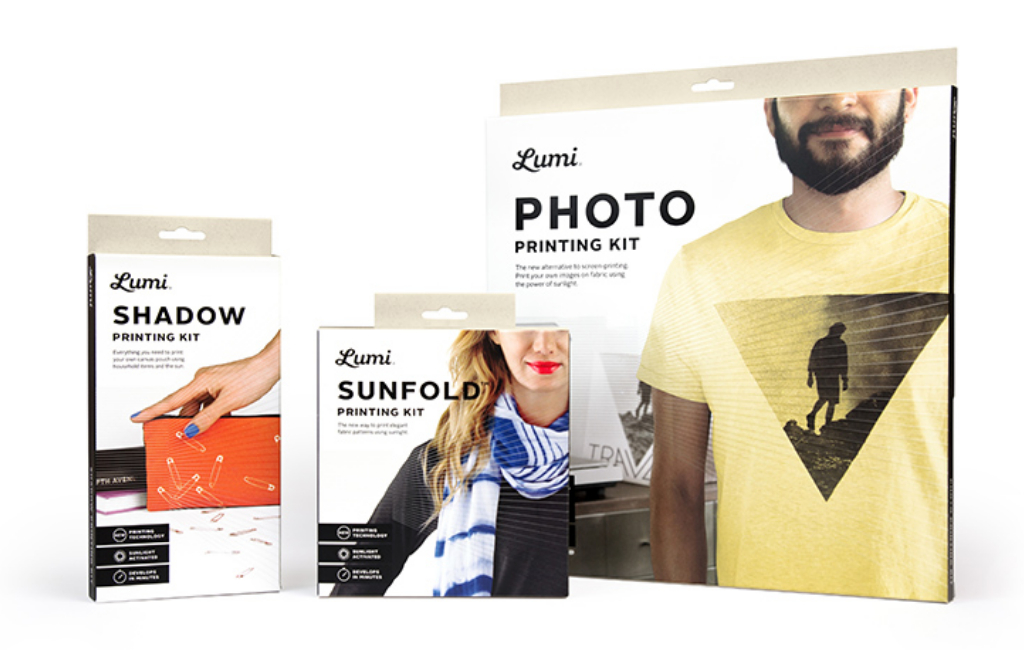Sseko – Customizable Sandals
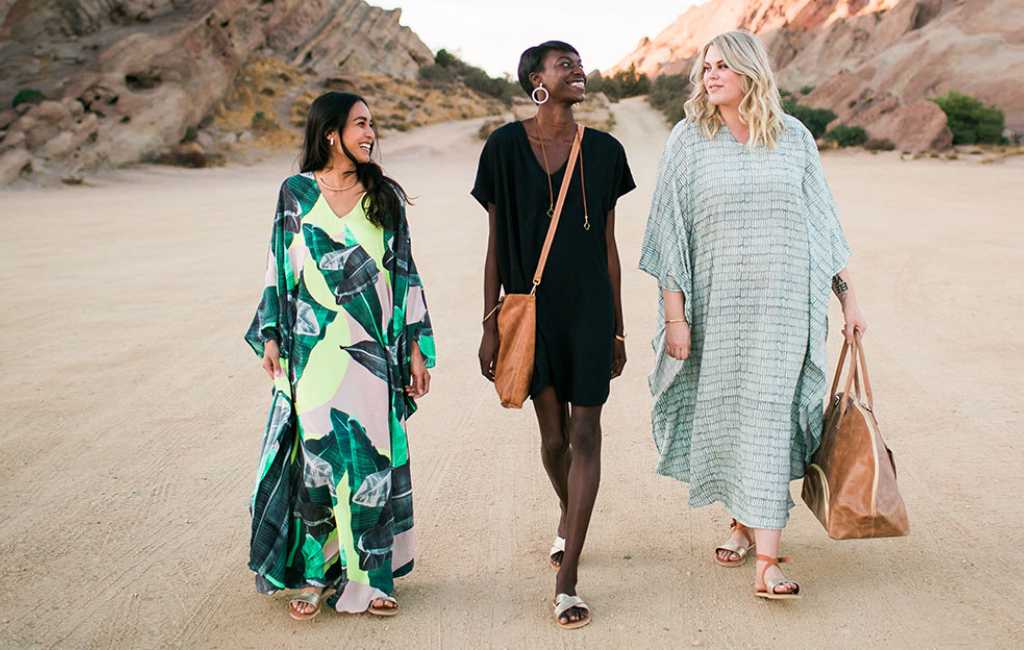
NO DEAL
EPISODE SUMMARY
🕓 Air Date: February 13, 2015
Asking For:
$300,000 for 10%
Investor:
No Deal
Deal:
No Deal
PRODUCT SUMMARY
Sseko Designs offers interchangeable sandals with a variety of straps and accents, allowing for versatile styles, while empowering and educating women in East Africa through their innovative work-study program.
WATCH HERE
IN A RUSH?
Click these to jump to the section you want to read.
Background Story
Liz and Ben Bohannon, the dynamic husband-and-wife team behind Sseko Designs, are based in the vibrant city of Portland, Oregon. Their journey towards creating Sseko was driven by a passion for empowering women and a commitment to make a positive impact in East Africa. Liz, armed with a journalism degree, initially embarked on a corporate career but found herself seeking a deeper connection to her values. Two months into her first job, she took a bold step by purchasing a one-way ticket to East Africa. Her intention was to immerse herself in the lives of women facing challenges in the region.
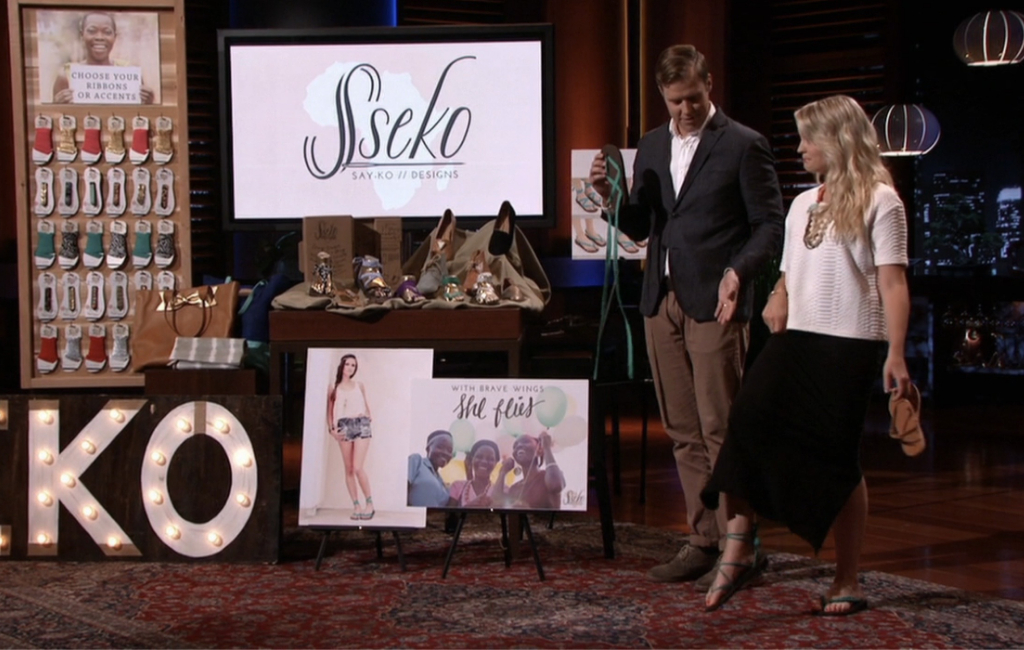
It was during this transformative experience that she conceived the idea of using business as a force for good. The genesis of Sseko Designs arose from Liz’s work at a youth development organization where she encountered a group of young women on the brink of graduating from high school in East Africa. Witnessing their struggles to find employment in their villages, Liz envisioned a marketplace solution. Drawing inspiration from a pair of strappy sandals she crafted in college, she decided to create a brand that not only offered stylish, customizable footwear but also provided employment and educational opportunities for these women. With this vision, Liz and Ben founded Sseko Designs.
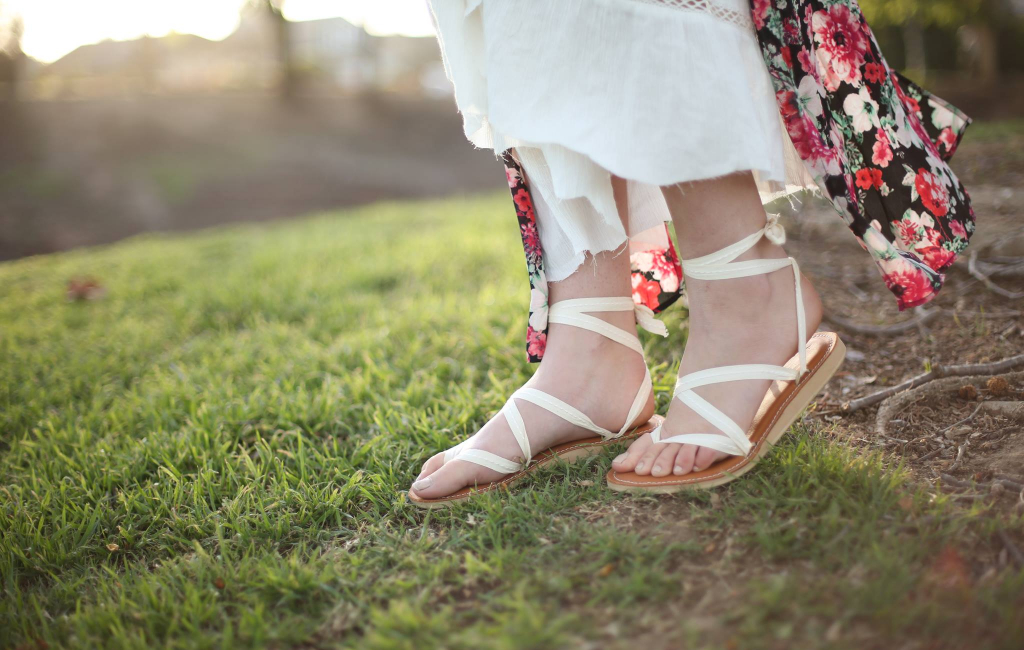
The company’s flagship product, the Ribbon Sandal, reflects Liz’s innovative spirit. This boho-chic leather sandal boasts interchangeable straps that allow wearers to express their unique style. The founders pioneered an innovative work-study program, employing women from impoverished backgrounds to handcraft the sandals. This program not only transforms lives by providing income but also ensures that every sandal sold directly contributes to empowering and educating women in East Africa. Through Sseko Designs, Liz and Ben have fused fashion with social impact, creating a brand that stands at the intersection of style, empowerment, and global responsibility.

The Product
Sseko Designs’ flagship product, the Ribbon Sandal, is a versatile and customizable footwear option that marries fashion with social impact. The sandal features a genuine leather base sourced from Kenya, providing a comfortable foundation for daily wear. What sets it apart is the ingenious interchangeability of its straps, allowing wearers to express their style in countless ways.
The Ribbon Sandal comes with a variety of interchangeable straps, ranging from boho-chic designs to sophisticated leather T-straps. Wearers can effortlessly tie and style the straps in different configurations, from funky crisscross patterns to classic flip-flop styles. This adaptability ensures that the sandal complements various looks, making it suitable for different occasions and seasons.
Beyond its fashion-forward design, the Ribbon Sandal embodies a social mission. Every purchase directly contributes to Sseko Designs’ innovative work-study program in East Africa. This program empowers and educates women by providing them with employment opportunities and the means to pursue higher education.
Customers can purchase Sseko sandals directly from the company’s website or through various retail channels. The price point for a pair of Ribbon Sandals, which includes the base and interchangeable straps, is approximately $65. The customizable nature of the product appeals to those seeking unique, ethically-made footwear while simultaneously supporting a meaningful cause.

How It Went
The company’s position before Shark Tank
Sseko Designs has navigated a trajectory of growth since its inception, exemplifying a commitment to social impact within the fashion industry. As of now, the company has achieved total sales of $3 million, showcasing a significant market presence. In the current fiscal year, Sseko anticipates reaching $1.1 million in sales, underscoring consistent demand for their unique, socially conscious products. Sseko Designs has strategically entered partnerships with major retailers and distributors to expand its reach. The brand has garnered attention and recognition for its social innovation.
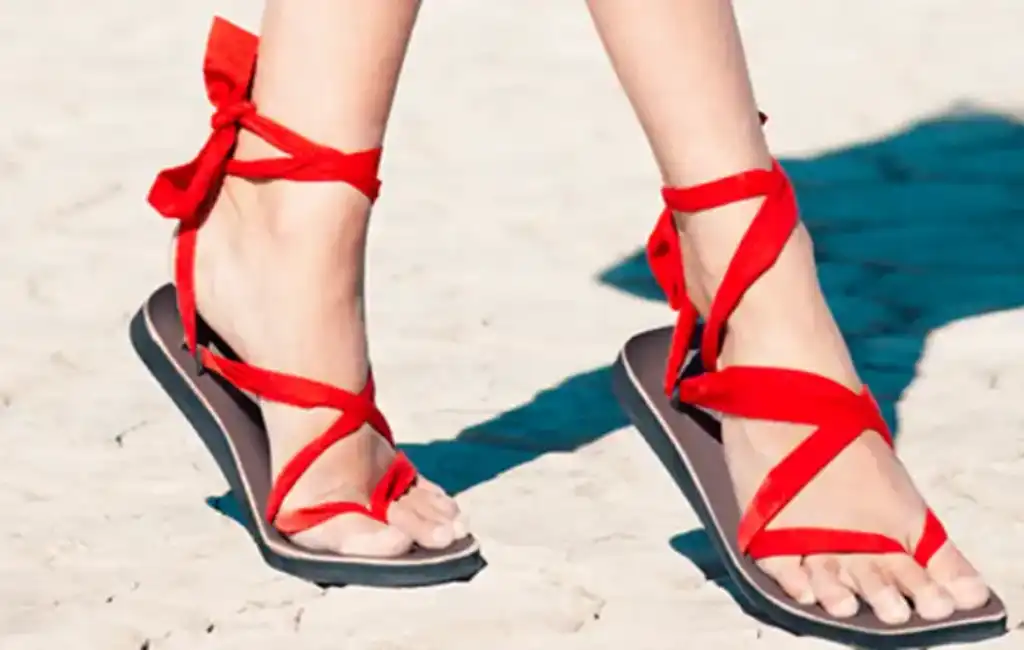
Sseko Designs was acknowledged as a top-5 social enterprise by Bloomberg Magazine, highlighting its commitment to blending business success with a positive societal impact. The company has also been featured at high-profile events, including a mention of being at the White House. Sseko Designs has taken a deliberate approach to funding. In 2012, the company initiated a debt round of $250,000, a strategic move to support scaling operations, hiring sales personnel, and entering major distribution channels. Currently, the business is running at a loss of approximately $90,000, attributed to investments in personnel and expansion.
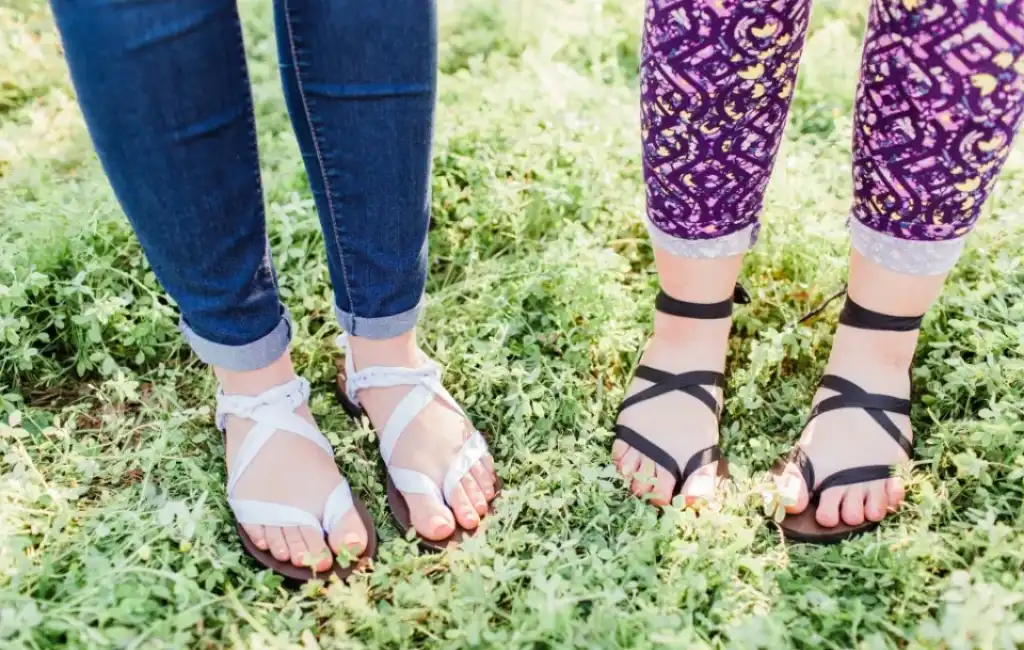
Liz and Ben Bohannon, the founders, are taking a combined salary of $45,000, demonstrating a frugal approach to personal compensation in favor of reinvesting in the company’s growth. Despite running a loss this year, Sseko Designs has outlined ambitious goals, aiming for $1.9 million in sales in the coming year, showcasing confidence in the scalability of their unique business model. Their emphasis on empowering and educating women in East Africa sets them apart, aligning their business goals with a broader mission for positive change.
The Negotiations:
The negotiations for Sseko Designs in the “Shark Tank” episode were marked by a mix of enthusiasm for the social mission and concerns about the company’s valuation and profitability. The founders, Liz and Ben Bohannon, entered the tank seeking $300,000 for a 10% equity stake in their company. Mark Cuban and Robert Herjavec both expressed reservations about the $3 million valuation, emphasizing that they couldn’t see the company being worth that much.
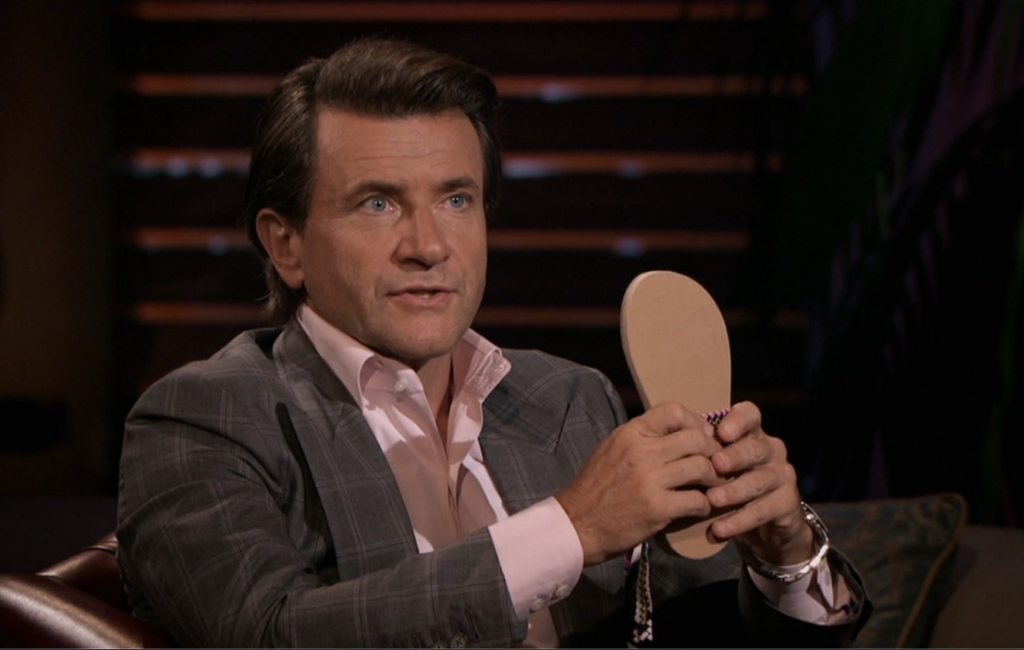
Kevin O’Leary presented an offer, valuing the company at around $700,000 and requiring a substantial 50% equity share. However, the founders declined this offer, sticking to their valuation. Lori Greiner, while appreciative of the mission, raised concerns about the comfort and style of the product, ultimately deciding to opt out. Barbara Corcoran highlighted the importance of profitability and questioned the cause-and-effect relationship between recognition and sales. Daymond John appreciated the mission but saw challenges in the business model, leading to his decision to opt out as well.
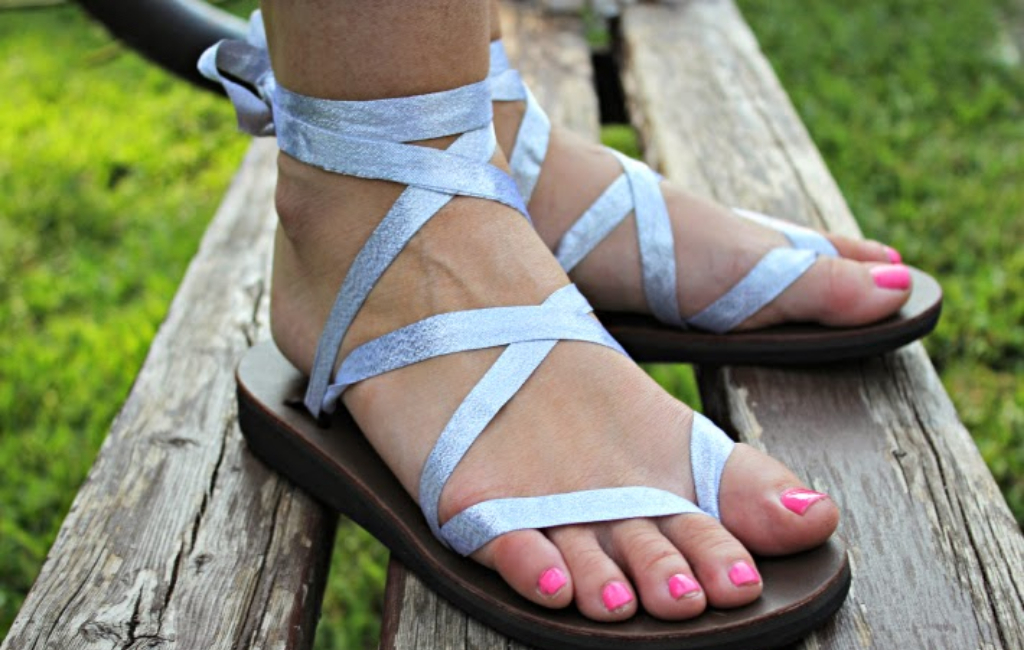
In the end, none of the Sharks were willing to invest at the proposed valuation. The negotiations showcased a divergence in perspectives, with the Sharks expressing skepticism about the company’s worthiness of a $3 million valuation and concerns about the business model. Despite not securing a deal, Liz and Ben left the tank with confidence in their company’s potential for growth and impact, maintaining their commitment to their unique blend of fashion and social responsibility.






